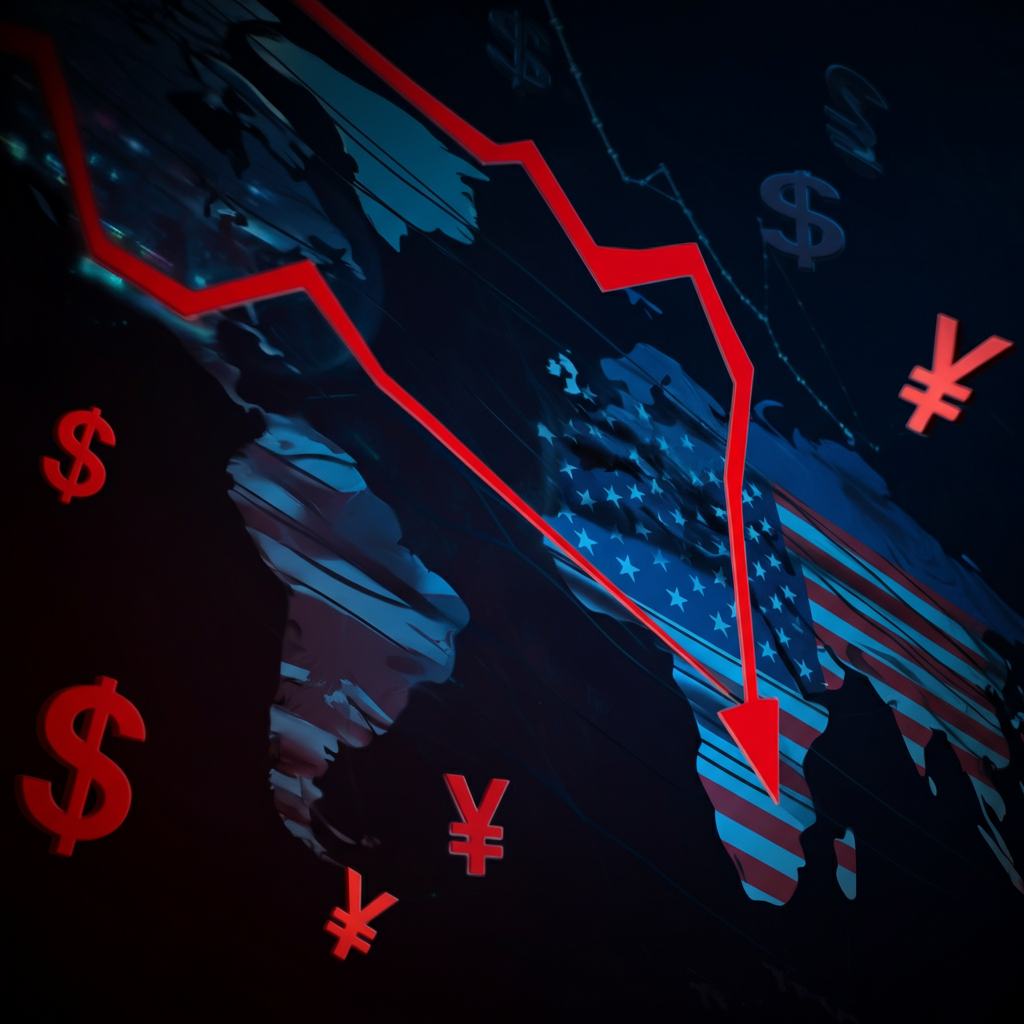The global financial markets have taken a hit as renewed jitters over China-US trade tensions pull world shares lower. For investors, this has become an all-too-familiar scenario. Over the past few years, the relationship between the two largest economies in the world has been a rollercoaster, with trade negotiations, tariffs, and sanctions creating uncertainty in global markets. The latest round of concerns has left markets reeling and sent investors scrambling for cover.
The Impact of Renewed China-US Trade Tensions
The China-US trade war initially began in 2018, with both countries imposing tariffs on each other’s goods, setting off a series of retaliatory measures. While there have been periods of easing tensions, the underlying issues between the two nations—such as intellectual property disputes, trade imbalances, and technological rivalry—remain unresolved. With the recent news of potential new tariffs and trade barriers, markets have once again turned volatile.
The trade tensions have a ripple effect, not just on China and the US, but on the global economy. Countries that rely on trade with these two powerhouses find themselves in the middle of the conflict, as businesses adjust to new regulations and tariffs. As a result, world shares have faced sharp declines, with investors increasingly worried about the implications for global trade and growth.
Why Are World Shares Feeling the Heat?
Investors around the world are always looking for stability. But when the world’s two largest economies are locked in a trade dispute, uncertainty reigns. The jitters that investors feel are not just about tariffs on steel or soybeans—they are about the broader implications for the economy.
The effects on world shares are often seen in the form of sharp drops in major stock indices, like the Dow Jones Industrial Average, the S&P 500, or the FTSE 100. These declines can be triggered by news reports, government statements, or shifts in market sentiment. The volatility creates a feedback loop where investors become even more cautious, leading to further declines.
China, a major player in global manufacturing and supply chains, has had its growth projections revised downward due to these trade tensions. Similarly, the US economy, while still robust, is also vulnerable to disruptions in its trading relationships. For countries and businesses that depend on the smooth flow of goods and services across borders, the impact is felt almost immediately.
What Does This Mean for Investors?
For investors, renewed jitters over China-US trade tensions pull world shares lower, but what should they do in response? It’s easy to panic during market downturns, but the smart approach is to focus on the long-term picture. If you’re an investor with a diversified portfolio, temporary declines in the market can often be opportunities to purchase assets at a discount.
That said, it’s essential to remain aware of the developments in global trade. Trade tensions between China and the US don’t just affect stock prices—they impact currencies, commodities, and bonds. So, savvy investors need to keep an eye on how these tensions evolve and adjust their strategies accordingly.
The Role of Central Banks
One factor that can help calm the market’s nerves in times of crisis is central banks. In the past, both the US Federal Reserve and China’s central bank have taken action to stabilize their respective economies during trade tensions. Lowering interest rates or injecting liquidity into the market can help buffer the effects of an economic slowdown. However, these actions have their limitations, especially when the root cause of the problem lies in the political and economic strategies of the two countries involved.
Is There Hope for Relief?
While it’s hard to predict the future, there are signs that both China and the US are aware of the costs of their trade war. The economic pain has been felt on both sides, and the global economy is already showing signs of strain. In the past, the two countries have been able to reach temporary agreements to de-escalate tensions. Whether that will happen again remains to be seen, but investors can take comfort in the fact that both countries are aware of the broader consequences of a prolonged trade conflict.
For the time being, however, it’s likely that global markets will remain jittery. As long as the threat of new tariffs and trade restrictions looms, world shares will continue to experience downward pressure. For investors, it’s a reminder that geopolitical risks are a constant factor in the market, and they must be prepared for unexpected changes in market conditions.
Conclusion
In conclusion, renewed jitters over China-US trade tensions have once again pulled world shares lower, creating a sense of uncertainty in global markets. While this situation is far from ideal, it’s also a reminder of the interconnectedness of the global economy. Investors who remain calm, stay informed, and adjust their strategies as necessary can navigate these turbulent waters. After all, in the world of finance, volatility is a given—but how you respond to it is what will define your success.


